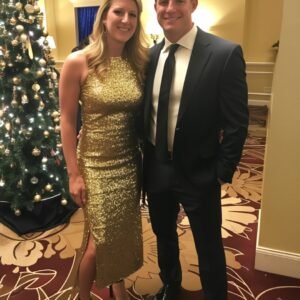I grew up in a world of luxury, where my affluent parents meticulously orchestrated every aspect of my life. They had established a successful family business that served as the cornerstone of our wealth and social standing, and from an early age, I was prepared to take over. I attended prestigious schools, mingled at elite social events, and was constantly reminded of my predetermined future: I was destined to inherit my father’s empire, a responsibility steeped in the legacy of our family.
However, as I matured, I realized that success in my family came with significant strings attached—strings that bound me to a life of conformity. My parents had a clear vision for my life, insisting that I follow a specific path: work hard, excel academically, and, most importantly, marry. To them, love was secondary; marriage was merely a means to demonstrate my maturity and readiness to lead the family business. It was a strategic alliance, designed to uphold our family’s reputation and secure the company’s future.
I had always valued my independence and relished the freedom of youth—the excitement of parties, the thrill of fast cars, and the joy of spontaneous adventures. I was not seeking love, at least not until my parents’ demands forced my hand. Their ultimatum was stark: if I wanted to inherit the family business, I needed to prove my commitment by marrying someone who fit their ideal image of success.
This demand felt more like a command than a loving suggestion, igniting a fierce anger within me. I had always believed I deserved the right to carve my own path, free from the stifling expectations of my parents. In that moment of rebellion, I resolved to choose a bride who would shock them—a “fresh-off-the-farm” girl whose very existence would challenge their polished vision of a suitable wife.
The turning point came on a sweltering afternoon when my father summoned me to his study, a room filled with antique furniture and portraits of our ancestors. He leaned in, his voice firm, and declared that it was time for me to settle down. “You’re almost 30 now,” he said, “and to inherit the family business, you need a wife.” I scoffed at the notion, my sarcasm evident as I questioned the absurdity of their expectations. My mother chimed in, emphasizing the importance of maintaining our family’s legacy.
Fueled by indignation, I decided that if I had to marry, I would do so on my own terms. I set out to find a partner who would defy their expectations, someone who embodied the authenticity I admired. It was at a charity event that I first met Mary, a country girl whose simplicity and genuine nature captivated me. She was everything my parents would disapprove of, and I was drawn to her unpretentious spirit.
As our relationship blossomed, I realized that my initial plan to shock my parents was evolving into something deeper. Mary was not just a means to rebel; she was a person with her own dreams and resilience. Our connection grew as we shared our hopes and fears, and I began to see her as a partner in life, not just a pawn in my defiance.
Despite the growing bond between us, my parents’ disapproval loomed large. They could not fathom my choice, and family gatherings became tense battlegrounds. Yet, I stood firm, determined to live my life authentically. The journey was fraught with challenges, but it ultimately led to a profound transformation in my understanding of success and happiness.
As I embraced my independence, I began to redefine my legacy—not one built on wealth and status, but on authenticity and love. My relationship with Mary became a testament to the power of genuine connection, and together, we forged a path that celebrated our individuality. In the end, I learned that true success lies not in conforming to others’ expectations, but in living a life that is true to oneself.
